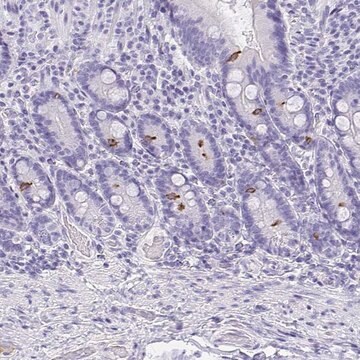AV41591
Anti-VSIG4 antibody produced in rabbit
IgG fraction of antiserum
Sinônimo(s):
Anti-V-set and immunoglobulin domain containing 4, Anti-Z39IG
About This Item
Produtos recomendados
fonte biológica
rabbit
Nível de qualidade
conjugado
unconjugated
forma do anticorpo
IgG fraction of antiserum
tipo de produto de anticorpo
primary antibodies
clone
polyclonal
Formulário
buffered aqueous solution
peso molecular
44 kDa
reatividade de espécies
pig, human, bovine
concentração
0.5 mg - 1 mg/mL
técnica(s)
western blot: suitable
nº de adesão NCBI
nº de adesão UniProt
Condições de expedição
wet ice
temperatura de armazenamento
−20°C
modificação pós-traducional do alvo
unmodified
Informações sobre genes
human ... VSIG4(11326)
Categorias relacionadas
Descrição geral
Especificidade
Imunogênio
Aplicação
Ações bioquímicas/fisiológicas
Sequência
forma física
Exoneração de responsabilidade
Não está encontrando o produto certo?
Experimente o nosso Ferramenta de seleção de produtos.
Código de classe de armazenamento
10 - Combustible liquids
Classe de risco de água (WGK)
WGK 3
Ponto de fulgor (°F)
Not applicable
Ponto de fulgor (°C)
Not applicable
Escolha uma das versões mais recentes:
Certificados de análise (COA)
Não está vendo a versão correta?
Se precisar de uma versão específica, você pode procurar um certificado específico pelo número do lote ou da remessa.
Já possui este produto?
Encontre a documentação dos produtos que você adquiriu recentemente na biblioteca de documentos.
Nossa equipe de cientistas tem experiência em todas as áreas de pesquisa, incluindo Life Sciences, ciência de materiais, síntese química, cromatografia, química analítica e muitas outras.
Entre em contato com a assistência técnica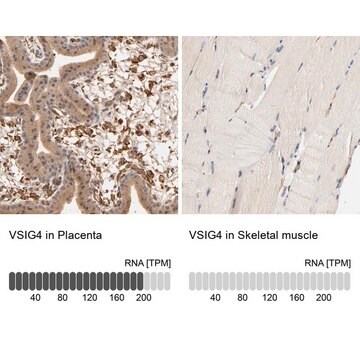
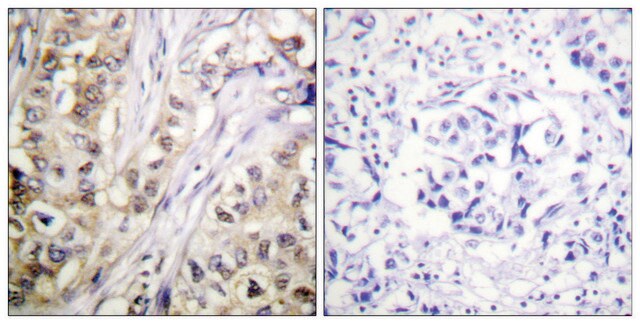


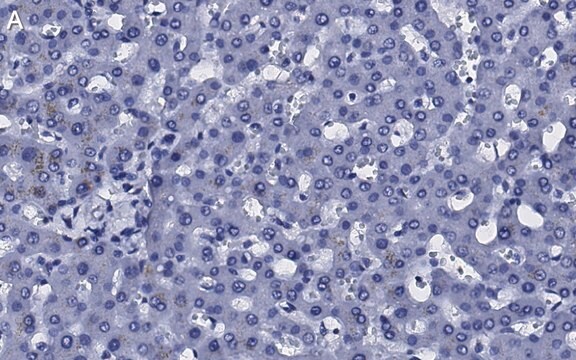
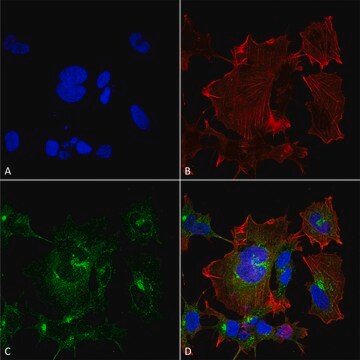
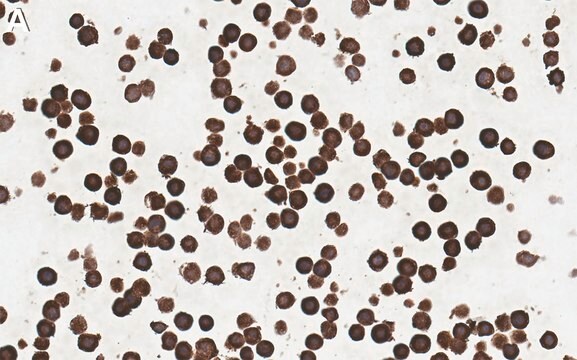
![Anti-Integrin αM [CD11b] Antibody, clone OX-42 clone OX-42, Chemicon®, from mouse](/deepweb/assets/sigmaaldrich/product/images/185/342/c1c1635a-3611-4b61-a5f0-daaa909d1801/640/c1c1635a-3611-4b61-a5f0-daaa909d1801.jpg)
